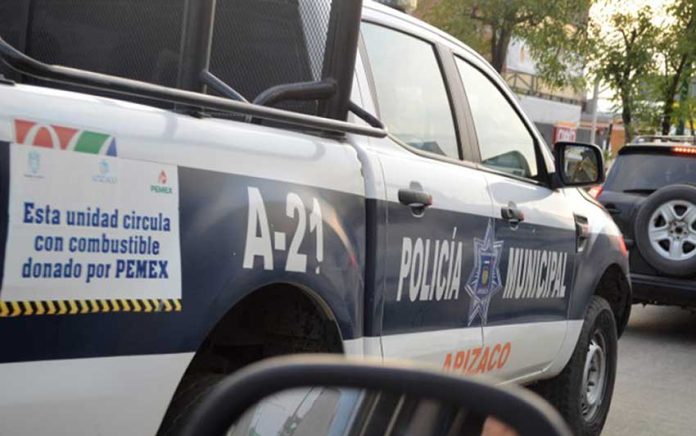Lawmakers are demanding that Pemex explain where fuel and asphalt donations to federal departments, state and municipal governments and social organizations have ended up amid revelations that at least nine gas stations sold gasoline allocated for donation.
The Budget and Public Accounts Committee of the lower house of Congress will ask the state oil company to deliver a report on its donation program during the presidency of Enrique Peña Nieto, claiming that it was carried out without effective oversight and turned into a profitable venture for those involved.
“In reality, it was never well known what the criteria [for the donation program] were. There were officials, even relatives of officials who acted as intermediaries for municipal governments and they were [effectively] agents . . . What should have been donations turned into a business,” said Alfonso Ramírez Cuéllar, the committee’s president.
At least nine gas stations operated by the companies Hidrosina and Tecpex sold gasoline in 2015 that Pemex had donated to federal departments such as the Secretariat of National Defense (Sedena) as well as state and municipal governments, an internal investigation at Pemex determined.
Four Mexico City service stations operated by the latter company received 22.6 million liters of gasoline between August 2013 and June 2015 that was destined to be donated to Sedena, the investigation found.
However, according to Pemex’s 2015 investigation report “it’s very probable that the product didn’t get to Sedena” and was sold to the public by the stations instead.
The report, seen by the newspaper Milenio, recommended that donation agreements be reviewed and that checks be carried out to ensure that fuel was arriving at its intended destination.
“. . . If there is no supervision of the allocation [of fuel] and monitoring of the provision of donations, there could be a loss of more than 1.12 billion pesos” in 2015 alone, the report said.
Milenio said the largest shareholders of Hidrosina, Mexico’s largest private petroleum group, are the brothers William, Gabriel and Paul Karam Kaasab, who along with other business people with interests in the company, have links to political figures from various parties.
México state was especially privileged with regard to fuel donations during the previous government’s six-year term, particularly while Emilio Lozoya was CEO of Pemex between December 2012 and February 2016.
Lozoya has also been accused of receiving bribes from Brazilian company Odebrecht and funneling some of the illicit funds to the Institutional Revolutionary Party (PRI) to help finance Peña Nieto’s 2012 election campaign.
The former Pemex CEO told Milenio that he didn’t recall any investigation into the alleged diversion of donations during his administration.
“. . . Pemex had a range of programs to donate fuel and asphalt to state governments and also to Sedena but it wasn’t an area that I dealt with . . . ” Lozoya said.
When José Antonio González Anaya took over the leadership of Pemex in 2016, a committee was formed to establish clearer rules for fuel and other donations, Milenio said.
Ramírez Cuéllar, a lawmaker with the ruling Morena party, said that Pemex needs to explain the irregularities detected in the delivery and use of the fuel it donated – and not just at the nine aforementioned gas stations.
He contended that the scheme became a wider vehicle for corruption.
“. . . They have to deliver a report about what was done because this has been a scandal for a very long time. Mayors themselves talked about the amounts they should give for the delivery of fuel, asphalt, oil or material for the paving of highways,” Ramírez said.
“Traditionally there was a section [in Pemex] that supposedly had to do with social assistance, both for civil associations and municipal governments, but in truth it was something that was completely discretional and without control, not just in the delivery of fuel but also material for the paving of streets and highways,” he added.
The deputy said it was imperative to know with certainty the final destination of all the donations and didn’t rule out the possibility that the Federal Auditor’s Office (ASF) would conduct a probe into the case.
Ricardo Monreal, Morena’s leader in the Senate, said the federal Attorney General’s office must “quickly” investigate the “very serious” irregularities detected at the Hidrosina and Tecpex gas stations, adding that he would take up the issue today with new top prosecutor, Alejandro Gertz Manero.
Source: Milenio (sp)
